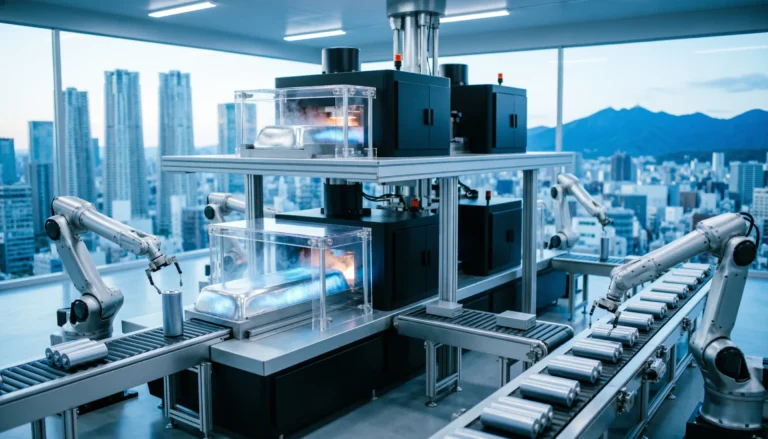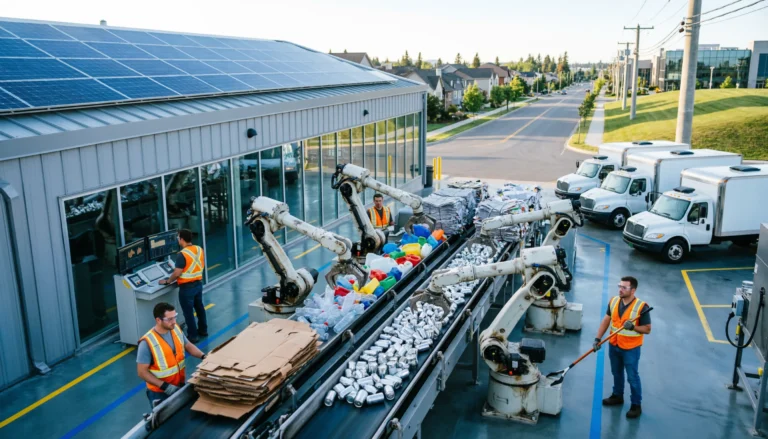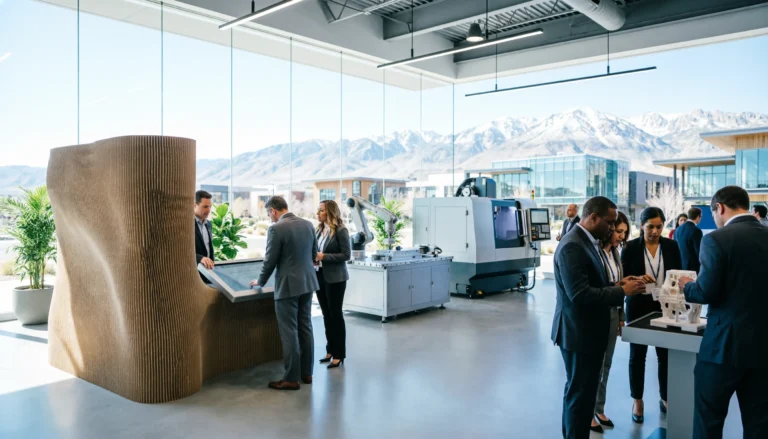
On July 19, Daimler Truck officially opened the Battery Technology Center (BTC) at the Mercedes-Benz plant in Mannheim, a year after the topping-out ceremony. The event was attended by prominent figures, including Michael Kleiner from the Ministry of Economic Affairs, Labour and Tourism of Baden-Württemberg, and Mannheim Mayor Christian Specht. Key representatives from Daimler Truck, such as Andreas Gorbach, Yariş Pürsün, Andreas Moch, Michael Salmen, Michael Brecht, and Bruno Buschbacher, also attended.
The BTC spans over 10,000 square meters and integrates battery development and production for Daimler Truck’s electric commercial vehicles. The center focuses on building knowledge about batteries and their manufacturing processes. It includes two main production areas: one for pilot cell production to gain process insights, and another for assembling prototype battery packs for testing. The site aims to begin series production of next-generation lithium-ion batteries in the latter half of the decade.
Andreas Gorbach emphasized the importance of the BTC for Daimler Truck’s electrification strategy, highlighting the decision to handle future battery assembly in-house at the Mannheim plant. This move aims to enhance the plant’s value and secure its future.
Director-General Michael Kleiner underscored the significance of battery technology for Baden-Württemberg, positioning the state as a leader in the field due to its innovative companies, research facilities, and skilled workforce. He called the BTC’s opening a pivotal step in the state’s transformation.
Yariş Pürsün noted that the BTC forms a crucial part of Daimler Truck’s technological advancements, setting the stage for the company’s future battery competencies. Concurrently, additional technology centers at Gaggenau and Kassel are developing electric drives and high-voltage components.
Andreas Moch highlighted the BTC’s role in developing battery production expertise and preparing for series production of battery packs. He expressed gratitude to the project team for their dedicated efforts.
Mayor Christian Specht praised the BTC for reinforcing the Mannheim plant’s role as a hub for battery technologies and high-voltage systems, contributing to the plant’s transition to emission-free drives and climate neutrality.
The BTC, housed in a renovated 1952 building with a new annex, features over 60 machines for prototypical battery cell and system production. It includes clean and dry rooms for producing pouch and prismatic cells, and a pilot line for battery pack assembly, all of which aim to build process and product knowledge.
Michael Salmen emphasized the BTC’s collaborative environment, where development and production planning teams work closely together to create and refine future products.
Bruno Buschbacher highlighted the BTC’s strategic importance in transitioning the Mannheim plant from traditional engines to emission-free drives, securing jobs and the plant’s future. He assured that the Works Councils would ensure a socially responsible implementation of this vision.
The BTC employs around 100 people and features a modern office concept with various work zones. The building also includes green elements on its façade, a green roof, and photovoltaic systems that generate enough energy to power about 50 homes.




